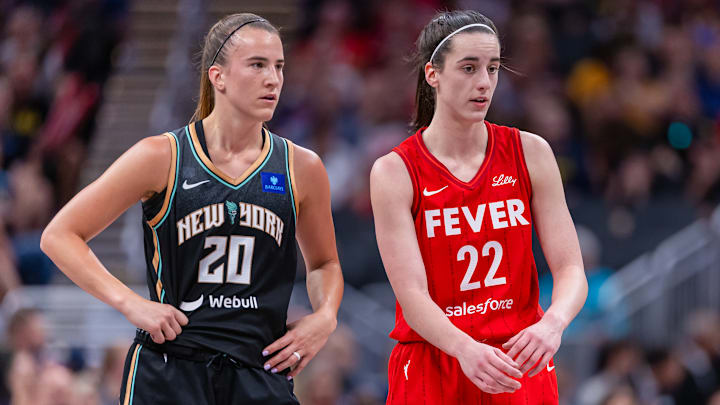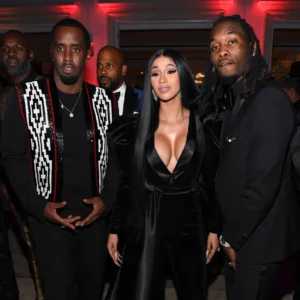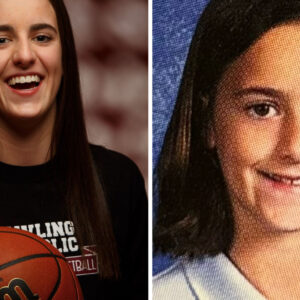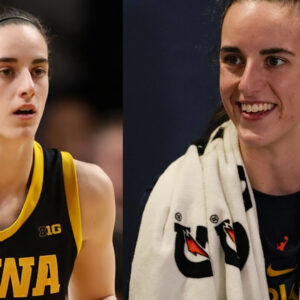The WNBA’s recent social media mishap is one of the most disappointing blunders the league has faced in its online presence. Whoever is behind the WNBA’s Twitter account — and more broadly, their social media strategy — may need to reconsider their approach or be reassigned. While I don’t advocate for anyone to lose their job, it’s clear that the league could greatly benefit from someone more competent managing its online presence.
The situation began during Assist Week, an initiative designed to celebrate the players who excel at facilitating on the court. The WNBA highlighted Chelsea Gray as the focal point of the week, which was fine, considering her impressive contributions. However, the issue arose when the league made a glaring mistake in their post about Caitlin Clark.
In a tweet meant to celebrate Clark’s record-breaking single-season assist total, the WNBA mistakenly claimed that she had 321 assists. The real number, as many fans quickly pointed out, was 337 — a mistake that remained unaddressed for hours. This tweet was up for around 10 hours, with the WNBA seemingly ignoring the corrections flooding in from the community.
When social media users brought attention to the error, instead of swiftly correcting the post or editing it (which is an easy fix on Twitter), the WNBA chose to leave the post up. They eventually took it down, but not with an apology or an updated post acknowledging the mistake. Worse still, they didn’t replace it with another post to properly celebrate Clark’s achievement. Instead, they opted to leave the mistake uncorrected and move on without addressing the issue.

What could have been a moment to shine a spotlight on Caitlin Clark — one of the WNBA’s most exciting and talented players — turned into a fiasco. Fans of Clark, who are a vocal and passionate group, were left frustrated by the handling of the situation. It felt as though the WNBA was punishing Clark’s supporters by not just letting the mistake slide, but by failing to rectify it in a timely manner.
Not only did the WNBA mishandle a simple tweet, but they also seemed to demonstrate a lack of respect for the player who has arguably become the face of the league. The omission of Clark’s name from the conversation, despite her having broken records and captured national attention, speaks to a larger problem in how the WNBA is perceived and managed.
In the NBA, if a similar mistake were made, the league would have acted quickly to correct it. The WNBA’s failure to fix their mistake immediately and then their decision to remove the post entirely (without reposting it correctly) creates an image of negligence and inconsistency.
This issue isn’t just about one tweet or one mistake — it’s indicative of a larger problem with how the WNBA’s social media is managed. The WNBA has made strides in recent years, gaining more exposure and fans, but moments like this remind us that they still have a long way to go in terms of professionalism and consistency in their online presence.
The WNBA needs to recognize that its social media presence plays a huge role in how fans engage with the league. It is an important tool for promoting players, celebrating milestones, and engaging with the broader basketball community. When the league drops the ball — whether it’s by posting incorrect stats or failing to recognize the talents of one of its brightest stars — it’s not just a missed opportunity; it’s a sign of poor management.

What’s even more troubling is the suggestion that the person behind the WNBA’s social media might have a personal bias against Caitlin Clark. It’s a serious accusation, but when one person manages the league’s online presence and repeatedly makes decisions that seem to sideline one player in favor of another, it raises questions about impartiality.
It’s critical that whoever is running the WNBA’s social media represents the league fairly and professionally. The role requires a neutral stance — especially when handling players like Clark, who are rapidly becoming the faces of the league. Allowing personal bias to influence the narrative undermines the integrity of the league and its commitment to promoting all of its players equally.
The WNBA needs to take a hard look at how its social media is managed and consider a change in personnel or approach. Mistakes like the Caitlin Clark tweet should not happen in the first place, and when they do, they should be addressed promptly and professionally. The league cannot afford to alienate its fan base, especially when it has so much potential to grow and thrive. A professional, respectful, and timely social media presence will go a long way in ensuring that the WNBA is recognized as the legitimate and exciting sports league that it is.
At the end of the day, it’s not just about fixing one tweet; it’s about building a stronger, more unified league that supports its players and engages its fans with the respect they deserve. The WNBA should strive for better — for the sake of its players, its fans, and its future.
Relative Articles
None found





